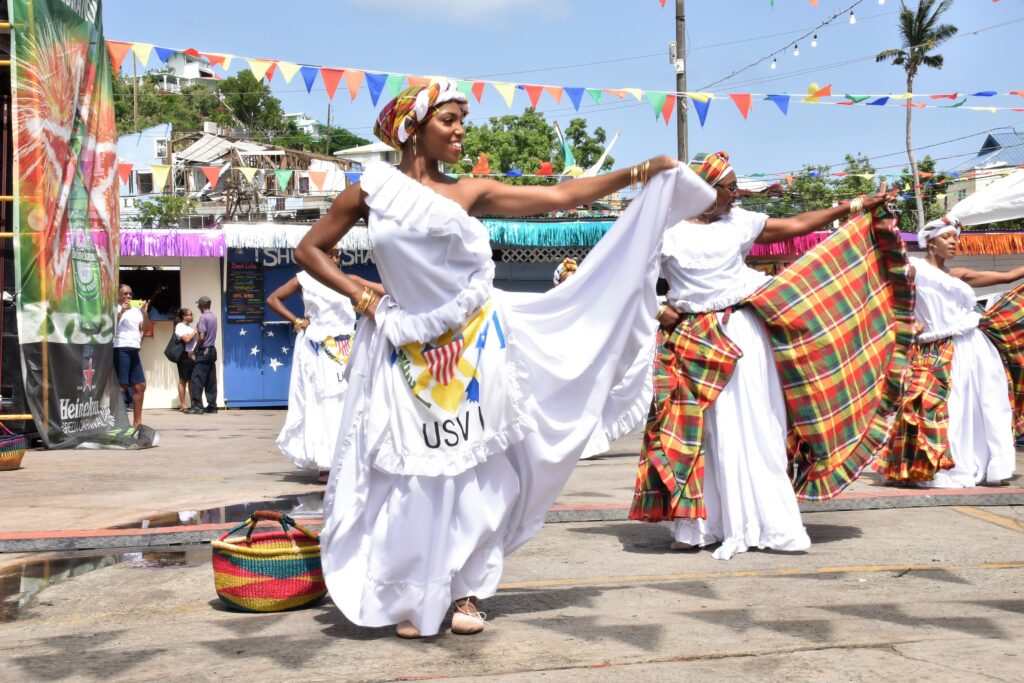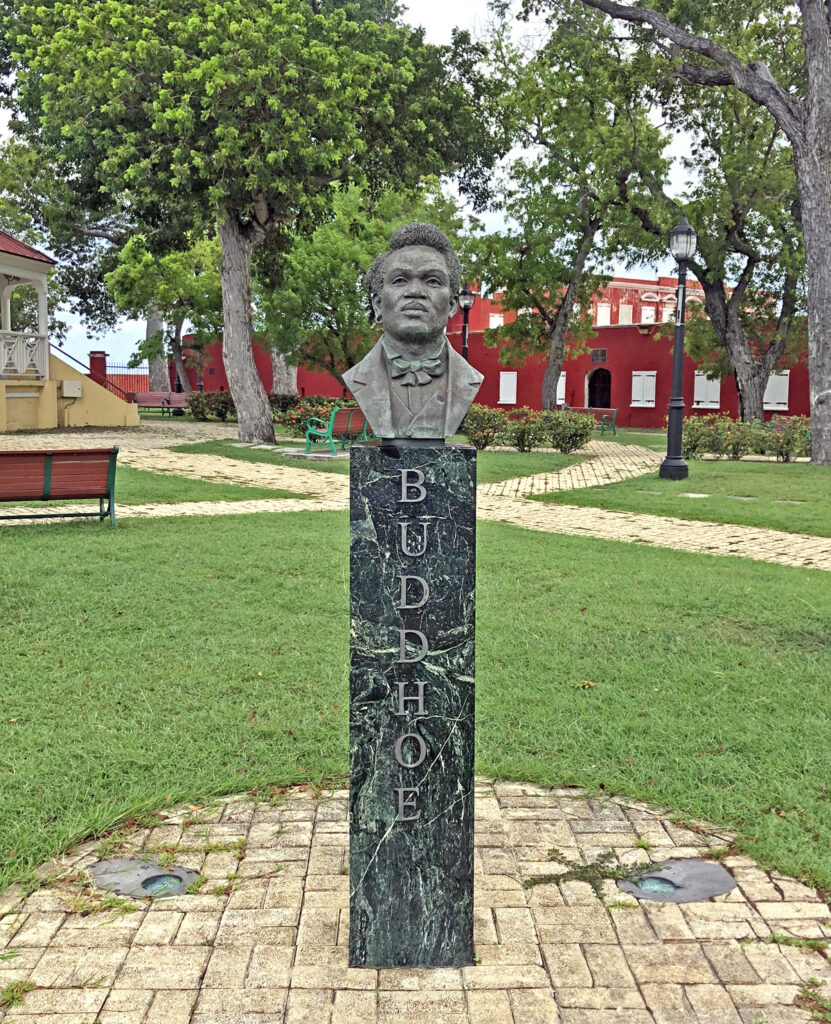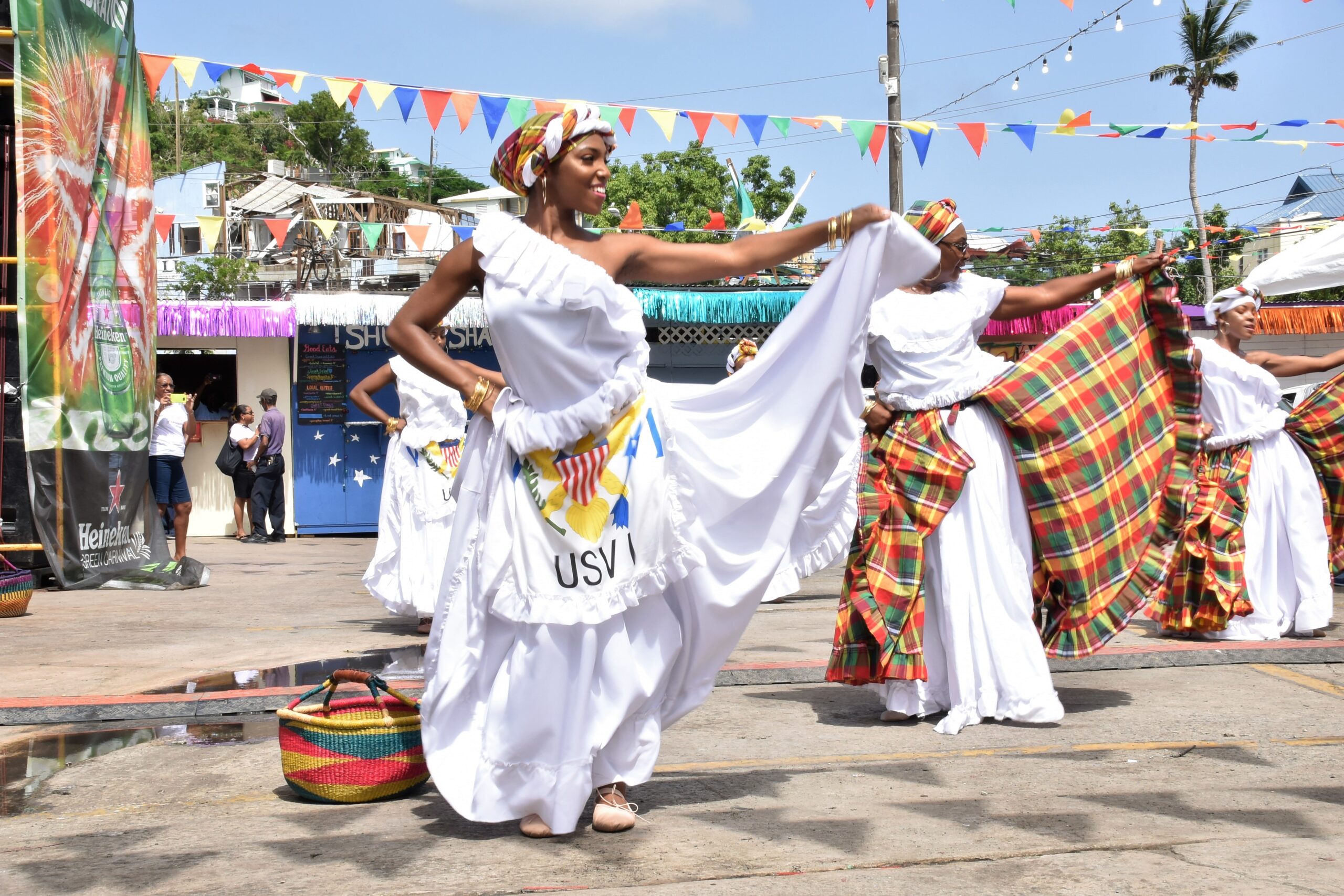While many Black people in the United States celebrated Juneteenth last month, one of the country’s territories is celebrating an even bigger holiday.
July 3 marked the 175th anniversary of the freeing of enslaved people in the U.S. Virgin Islands, a U.S. territory east of Puerto Rico once controlled by Denmark. The largest islands in the territory are St. Croix, St. John, and St. Thomas.

For the last several days, the territory has been celebrating the Virgin Islands 175th Emancipation Celebration with panels, dance performances, an appearance by the Texas-based Hiplet Ballerinas, a parade, music festival, a race and speeches from former NAACP Chairwoman Roslyn Brock and U.S Del. Stacey Plaskett, D-U.S.V.I.
The speakers all referred to the history dating back to 1848, long before slaves were declared free in the mainland United States. Slaves in St. Croix rose up and demanded their freedom under the leadership of a Black man named John Gottleib, known familiarly as Buddhoe.
In 1792, Denmark issued an edict abolishing slavery, to take effect in 1803. But slavery dragged on as the Danes sought to make money from sugar production into the future. The Danish government feared anger by planters, who they anticipated would demand payment for their enslaved people. The enslaved population in the French-ruled islands revolted in May 1848 and forced the islands’ governor to issue a proclamation of emancipation. Word of this development spilled into the Danish-ruled islands, where the enslaved began to plot. By July 3, the enslaved were streaming from the estates of St. Croix by the hundreds. Buddhoe, who emerged as a leader among the enslaved, brandished a sword from atop a horse. The angry crowd met Governor-General Peter Von Scholten as he exited his carriage, prompting him to declare the slaves in St. Croix free.

The story impressed Brock, who was the youngest chair of the NAACP from 2010 – 2017.
“As a student of the civil rights movement in the United States, I was surprised to learn of the courage and determination of Gen. Buddhoe, who led more than 9,000 enslaved people of the Danish West Indies to march here to Fort Frederik on July 3, 1848, to demand their immediate emancipation from slavery,” Brock said. “This historic event occurred more than 17 years prior to the abolition of slavery in the United States with the passage of the 13th amendment in 1865.”
Plaskett said that the climate of today, with book bans, erasure of Black history in schools and the Supreme Court’s recent decision blocking affirmative action in college admissions, offers the U.S. Virgin Islands a unique opportunity to affect the world.
“We in the Virgin Islands have an opportunity to be a beacon to all people throughout the world of what it means to be united in love and unity and pride,” Plaskett said.
As for Brock, a Florida native, she said she would be back to visit the VIrgin Islands as she’d had a taste of life and culture there – including a meal at the famous Chicken Shack restaurant, a sampling of Alvin’s Hot Sauce and some ginger, lime and rum punch. The history was a revelation to her, she said.
“Today is a day of celebration as we recognize that we stand on the shoulders of giants who were self liberators, who literally took their freedom.,” Brock told the crowd in St. Croix. “We honor today their sacrifice, their struggle, their resilience, and their determination as they paved the way for our forward progress and change across our nation.”








